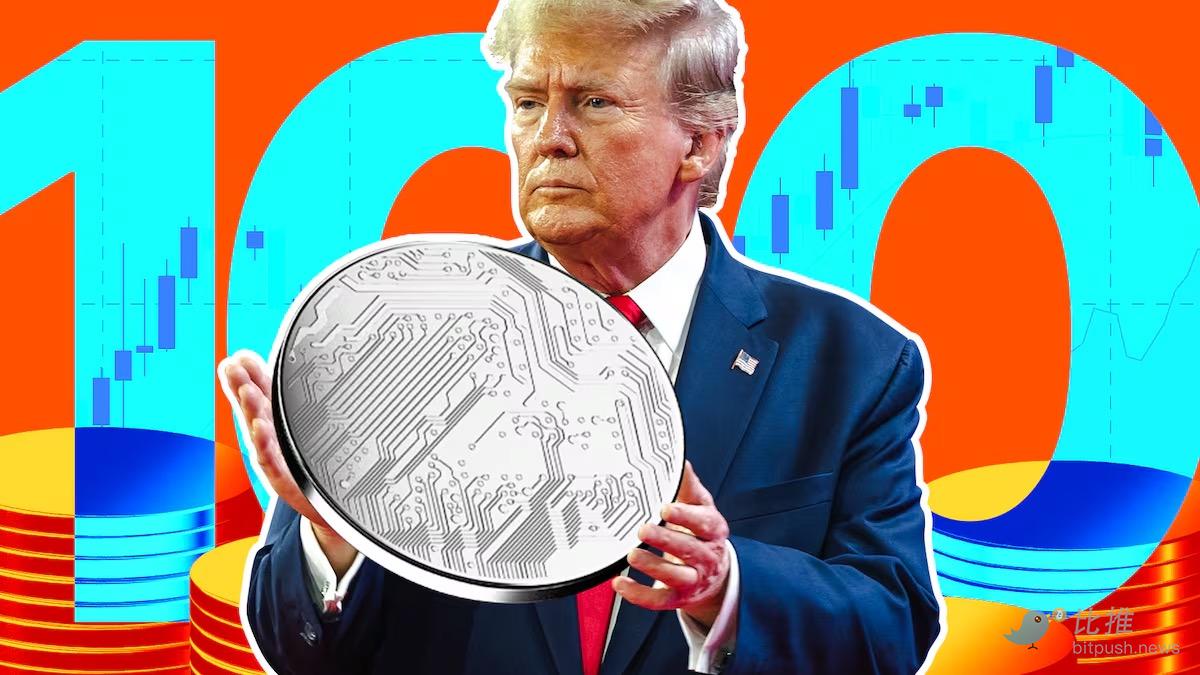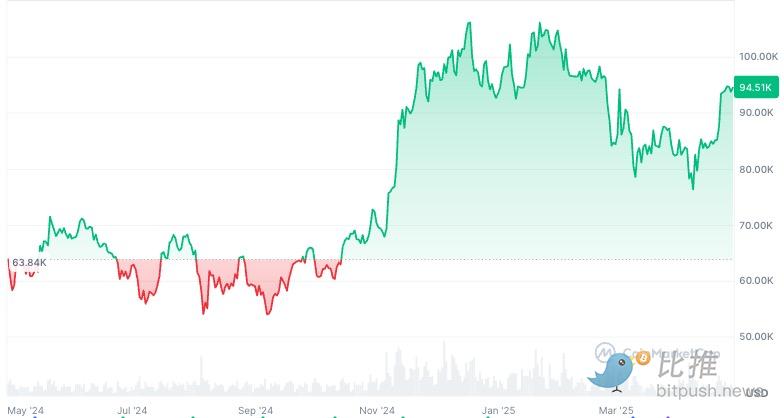Source: DL News
Translated and Compiled by: BitpushNews

Since Trump took office as the US President, it has been chaotic for various industries. As he celebrates the first hundred days of his second term, supporters of digital assets have begun to examine what his governance means for the industry.
Mateusz Kara, CEO of crypto company Ari10, told DL News that the question is "Have we overestimated what Trump can do?"
In last year's US election, the crypto industry supported Trump, hoping he would end the Biden administration's crypto crackdown, implement industry-friendly rules, and kick off a bull market.
Although some rules have been relaxed, the White House's trade war has caused the global crypto market capitalization to shrink by nearly 21% since its peak in December last year, approximately $800 billion.
Bitcoin dropped over 10% from its level the day before Trump's inauguration ceremony on January 20th, when Bitcoin hit a historic high of $109,225. Dow Jones market data shows that earlier this month, affected by tariff concerns, Bitcoin was impacted along with other risk assets, falling below $74,500 on April 7th, and has since rebounded to around $94,500 at the time of writing.

So, what promises has Trump fulfilled so far, and where is the industry heading?
Biden Era's "Crypto War"
Former US President Joe Biden harshly criticized cryptocurrencies, pushing for strict regulation of the industry and supporting the crypto crackdown initiated by then-SEC Chairman Gary Gensler.
During his campaign, Trump promised to end Biden's "crypto war".
After taking office, Trump replaced Gensler with a pro-crypto new chairman Paul Atkins, who promised to bring clarity to crypto regulation.
This year, the SEC withdrew lawsuits against crypto companies like Coinbase, Ripple, and Kraken.
Trump also appointed industry supporters, such as financial heavyweight Howard Lutnick, who supports Tether, as Commerce Secretary, and David Sacks as the crypto czar.
In his first 100 days, Trump issued a series of comprehensive orders banning the creation of a digital dollar, protecting self-custody, establishing a crypto regulatory advisory group, and establishing a strategic Bitcoin reserve.
He also pardoned Silk Road founder Ross Ulbricht and hosted the first White House Crypto Summit.
This year, federal regulators have revoked several Biden-era crypto guidelines, paving the way for financial institutions to enter crypto services.
Symbolic Significance > Substantial Benefits?
In short, Trump seems to have fulfilled most of his crypto promises. So why are some market observers dissatisfied?
Jonathan Dixon, executive at regulatory tech company eflow Global, told DL News: "So far, many campaign promises seem more symbolic than substantive."
"The Bitcoin reserve is essentially a rebranding - these assets were already held by the government, not a sign of active market participation."
Dixon stated that while Trump's actions mark a "shift in rhetoric from the previous administration", "rhetoric alone cannot translate into regulatory certainty".
The Trump administration has not yet pushed through new laws, but some are progressing on Capitol Hill.
Republican Senator Tim Scott from South Carolina said in early April: "We are making good progress."
Eric Rose, Digital Assets Executive at StoneX Digital, noted: "These are all very positive factors for the field, but they need time to prove themselves... Just because banks are allowed to participate in digital assets doesn't mean they'll enter tomorrow, right? They need time to develop strategies, decide their direction, how to implement the strategy, and hire relevant personnel."
Eric Rose told Market Watch that this could take up to two years of preparation.
Trade War
Mateusz Kara, CEO of Ari10, said: "The market might be disappointed with Trump's governance because we haven't seen data rising. This is the result of delayed rate cuts and the chaos Trump brought to the market."
Trump has so far failed to fulfill his rate cut promise, with Fed rate cuts seen as a catalyst for risk assets like cryptocurrencies and stocks.
This is why Bitcoin surged when the central bank cut rates in September and November.
The issue is that the Federal Reserve operates independently of the White House, and Fed Chairman Jerome Powell is reluctant to cut rates, especially after Trump imposed comprehensive tariffs on nearly 100 countries (including mostly "penguin" island nations) and made the US financial future more uncertain.
After Trump stopped these tariffs, the overall crypto market slightly recovered, but any hostile actions could offset this impact.
Anthony Young, Chief Business Officer at crypto risk management company CoinCover, said: "The US government's trade war will inevitably affect the crypto industry, with the focus on whether crypto can continue to serve as a hedge for global market behavior."
Some believe Trump's trade war might benefit cryptocurrencies.
Papuna Lezhava, CEO and co-founder of fintech startup Keepz and former IMF advisor, stated: "Trump's foreign trade policy might actually make cryptocurrencies more attractive to those wanting to avoid traditional financial systems or government-controlled currencies."






